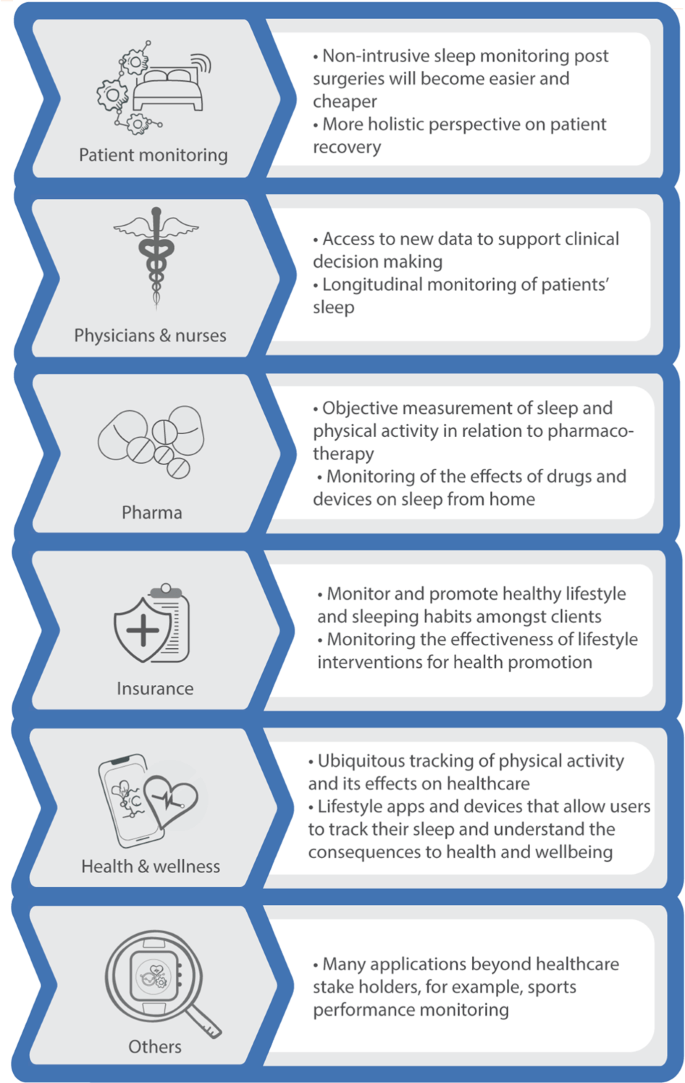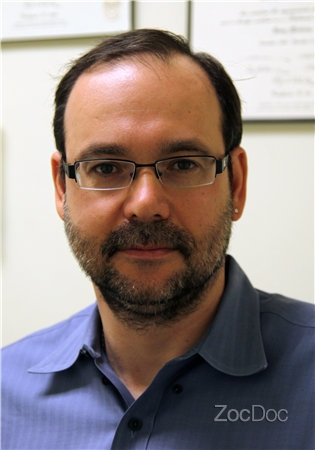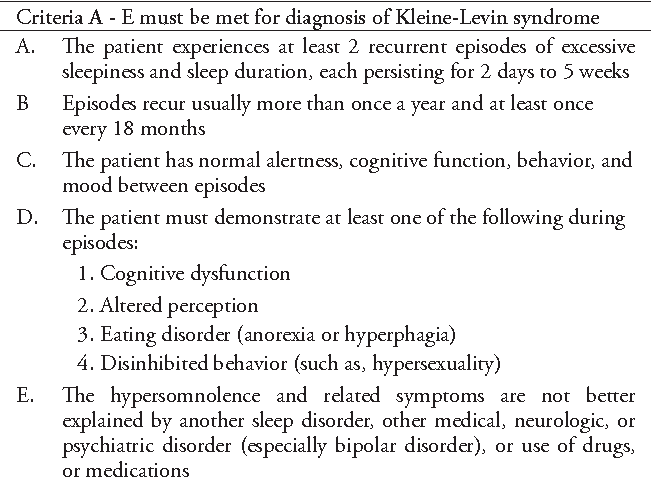Sleep Clinic

If you’ve ever struggled with sleep disorders, you know just how frustrating and exhausting it can be. But luckily, there’s a place that’s solely dedicated to helping you achieve a restful night’s sleep – the Sleep Clinic. With a mission and vision centered around ethical patient care and clinical innovation, the Sleep Clinic is determined to become the go-to resource for all things sleep health. Their ultimate goal? To provide unparalleled patient support and diagnostic excellence to those who are in need. So if you’re tired of tossing and turning all night, why not give the Sleep Clinic a try? They’re here to help you find the sweet dreams you’ve been longing for.
What is a Sleep Clinic?
Definition and Purpose of a Sleep Clinic
A sleep clinic is a specialized medical facility that focuses on the diagnosis and treatment of sleep disorders. These clinics are equipped with state-of-the-art equipment and staffed by highly trained sleep specialists who specialize in the study of sleep medicine. The main purpose of a sleep clinic is to help individuals who are experiencing sleep-related problems by providing comprehensive evaluation, diagnosis, and treatment options.
Sleep clinics are designed to create a comfortable and controlled environment where individuals can undergo various tests and evaluations to identify the root causes of their sleep issues. These clinics employ a multidisciplinary approach, involving sleep physicians, sleep technologists, nurses, and respiratory therapists, who work together to develop personalized treatment plans tailored to each patient’s needs.
Services Offered by a Sleep Clinic
Sleep clinics offer a wide range of services to help individuals with sleep disorders. These services include:
-
Diagnostic evaluations: Sleep clinics conduct comprehensive evaluations to diagnose various sleep disorders. This may involve assessing medical history, conducting physical examinations, and monitoring sleep patterns through overnight sleep studies.
-
Overnight sleep studies: One of the key services offered by sleep clinics is the overnight sleep study, also known as polysomnography. During this study, a patient spends a night at the clinic while various physiological parameters, such as brain waves, eye movements, heart rate, breathing patterns, and oxygen levels, are monitored to identify any abnormalities.
-
Multiple Sleep Latency Test (MSLT): The MSLT is a test used to evaluate excessive daytime sleepiness and to diagnose conditions such as narcolepsy. It measures the time it takes for an individual to fall asleep during a series of daytime naps.
-
Maintenance of wakefulness test (MWT): The MWT measures an individual’s ability to stay awake during a period of time and is often used to assess daytime sleepiness in professions that require high levels of alertness, such as pilots or truck drivers.
-
Continuous Positive Airway Pressure (CPAP) titration: If a patient is diagnosed with obstructive sleep apnea, a sleep clinic may provide CPAP titration. This involves fitting the patient with a mask that delivers pressurized air to keep the airway open during sleep.
-
Behavioral therapy: Sleep clinics also offer behavioral therapy programs that focus on modifying behaviors and routines to improve sleep quality. These programs may include sleep hygiene education, relaxation techniques, and cognitive-behavioral therapy for insomnia (CBT-I).
-
Medication management: In certain cases, medication may be prescribed to address sleep disorders. Sleep clinics may provide consultations with sleep physicians who are qualified to prescribe medications and manage their use.
-
Follow-up care: Sleep clinics offer ongoing care and follow-up appointments to monitor treatment progress, make any necessary adjustments, and provide support to patients throughout their sleep disorder journey.
Overall, sleep clinics aim to provide comprehensive care and support to individuals experiencing sleep disorders, helping them improve their sleep health and overall well-being.
Common Sleep Disorders
Sleep disorders can have a significant impact on a person’s overall health and quality of life. Here are some of the most common sleep disorders diagnosed and treated at sleep clinics:
Insomnia
Insomnia is a sleep disorder characterized by difficulty falling asleep, staying asleep, or having non-restorative sleep. It can lead to daytime fatigue, irritability, and difficulty concentrating. Insomnia can be caused by various factors, including stress, anxiety, medical conditions, and certain medications.
Sleep Apnea
Sleep apnea is a sleep disorder in which a person’s breathing is repeatedly interrupted during sleep. This interruption is typically caused by a partial or complete blockage of the airway. Common symptoms of sleep apnea include loud snoring, excessive daytime sleepiness, morning headaches, and frequent awakenings during the night.
Narcolepsy
Narcolepsy is a neurological disorder that affects the brain’s ability to regulate sleep-wake cycles. It is characterized by excessive daytime sleepiness, sudden episodes of muscle weakness or paralysis (cataplexy), vivid hallucinations, and sleep paralysis. People with narcolepsy often experience uncontrollable, overwhelming urges to sleep, even after getting a full night’s rest.
Restless Leg Syndrome
Restless Leg Syndrome (RLS) is a neurological condition characterized by an uncontrollable urge to move the legs, often accompanied by discomfort or unpleasant sensations. These sensations are typically worse at night and can interfere with falling asleep or staying asleep. RLS can lead to insomnia and excessive daytime sleepiness.
Parasomnias
Parasomnias are a group of sleep disorders characterized by abnormal behaviors or experiences during sleep. These can include sleepwalking, sleep terrors, nightmares, and sleep-related eating disorders. Parasomnias can disrupt sleep quality and lead to daytime fatigue and other related issues.
Importance of Sleep Health
Sleep plays a vital role in maintaining overall health and well-being. It is essential for proper physical and cognitive functioning, as well as emotional stability.
Effects of Sleep Deprivation
Lack of sleep or chronic sleep deprivation can have numerous negative effects on various aspects of your life. Some of the effects of sleep deprivation include:
-
Cognitive impairment: Sleep deprivation affects attention, concentration, problem-solving abilities, and memory. It impairs cognitive functions and can lead to decreased productivity and increased errors in daily activities.
-
Emotional disturbances: Sleep deprivation can have a negative impact on mood, making individuals more irritable, moody, and prone to mood swings. It can also contribute to increased feelings of anxiety and depression.
-
Weakened immune system: Sleep deprivation can weaken the immune system, making individuals more susceptible to infections and illnesses. It can also slow down the body’s healing process.
-
Increased risk of chronic conditions: Lack of quality sleep has been linked to an increased risk of chronic conditions such as obesity, diabetes, cardiovascular disease, and even certain types of cancer.
-
Impaired physical performance: Sleep deprivation can lead to reduced physical performance, including decreased coordination, slower reaction times, and diminished motor skills.
Benefits of Quality Sleep
On the other hand, getting adequate, high-quality sleep offers numerous benefits for overall health and well-being. These benefits include:
-
Improved cognitive function: Quality sleep enhances cognitive abilities, including attention, concentration, problem-solving, and memory. It promotes better learning and academic performance.
-
Emotional well-being: Sufficient sleep promotes emotional stability and helps regulate moods. It can reduce the risk of developing mood disorders such as anxiety and depression.
-
Enhanced immune function: Quality sleep strengthens the immune system, helping to fend off infections and diseases.
-
Physical performance: Good sleep quality supports physical performance, allowing for better coordination, faster reaction times, and increased endurance.
-
Optimal metabolism and weight management: Sufficient sleep is essential for maintaining a healthy weight and preventing obesity. It helps regulate appetite, improves glucose metabolism, and balances hormone levels.
Signs and Symptoms of Sleep Disorders
It is important to be aware of the signs and symptoms that may indicate a possible sleep disorder. If you experience any of the following symptoms on a regular basis, it may be beneficial to consult with a sleep clinic:
Excessive Daytime Sleepiness
Feeling excessively tired or drowsy during the day, even after a full night’s sleep, can be a sign of an underlying sleep disorder. Excessive daytime sleepiness can significantly impact daily functioning and increase the risk of accidents and errors.
Loud Snoring
Snoring is a common occurrence during sleep, but loud, chronic snoring can be indicative of sleep apnea. Sleep apnea is characterized by repeated pauses in breathing during sleep, often followed by gasping or choking sounds as breathing resumes.
Difficulty Falling or Staying Asleep
Struggling to fall asleep or stay asleep throughout the night can be a sign of insomnia or other sleep disorders. Difficulty initiating or maintaining sleep can lead to fragmented sleep and daytime sleepiness.
Morning Headaches
Waking up with frequent headaches, especially in the morning, can be a symptom of sleep apnea or other sleep-related breathing disorders. These headaches are often caused by changes in oxygen levels and improper airflow during sleep.
Episodes of Nocturnal Awakening
Experiencing frequent awakenings during the night can disrupt sleep continuity and result in poor-quality sleep. Nocturnal awakenings can be caused by conditions such as sleep apnea, restless leg syndrome, or parasomnias.
If you experience any of these symptoms or have concerns about your sleep quality, it is important to seek professional help from a sleep clinic. A comprehensive evaluation and diagnosis can help identify the underlying sleep disorder and guide appropriate treatment options.
Diagnostic Process
When you visit a sleep clinic, you can expect a comprehensive diagnostic process to identify the specific sleep disorder you are experiencing. The diagnostic process typically involves the following steps:
Initial Consultation
During the initial consultation, you will meet with a sleep physician or sleep specialist who will review your medical history, discuss your symptoms, and ask detailed questions about your sleep patterns and daily routines. This information will help the sleep physician assess the likelihood of a sleep disorder and determine the appropriate diagnostic tests.
Sleep Study
A sleep study, also known as polysomnography, is one of the primary diagnostic tests used in sleep clinics. This test involves spending a night at the clinic while various physiological measurements are recorded during sleep. These measurements typically include brain waves, eye movements, muscle activity, heart rate, breathing patterns, and oxygen levels. The data collected during the sleep study is analyzed by sleep technologists and interpreted by sleep physicians to make a definitive diagnosis.
Other Diagnostic Tests
In addition to the sleep study, other diagnostic tests may be conducted depending on your symptoms and suspected sleep disorder. For example, a multiple sleep latency test (MSLT) may be performed to evaluate excessive daytime sleepiness and detect conditions such as narcolepsy. Maintenance of wakefulness tests (MWT) may be used to assess wakefulness and alertness levels.
Additional tests such as actigraphy (wearing a wristwatch-like device to monitor sleep-wake patterns), genetic testing, or specialized imaging studies may also be recommended in certain cases to aid in diagnosis.
The diagnostic process aims to provide a comprehensive understanding of your sleep disorder and to identify the most appropriate treatment plan for your specific needs.
Treatment Options
Once a sleep disorder has been diagnosed, a sleep clinic will work with you to develop an individualized treatment plan. The treatment options for sleep disorders may include:
Behavioral Therapy
Behavioral therapy, such as cognitive-behavioral therapy for insomnia (CBT-I), can be highly effective in managing sleep disorders. CBT-I aims to identify and modify negative thoughts and behaviors that contribute to sleep issues. It may involve sleep hygiene education, relaxation techniques, stimulus control, and sleep restriction therapy.
Medication
In some cases, medication may be prescribed to alleviate symptoms or treat underlying sleep disorders. Sleep clinics have sleep physicians who are qualified to prescribe medications and monitor their use. Medications for sleep disorders may include sleep aids, antidepressants, stimulants, or medications specifically targeting the underlying cause of the sleep disorder.
It is important to note that medication should always be used under the guidance and supervision of a qualified healthcare professional.
Continuous Positive Airway Pressure (CPAP)
Continuous Positive Airway Pressure (CPAP) is the most common treatment for obstructive sleep apnea. It involves wearing a mask that covers the nose or both the nose and mouth during sleep. The mask is connected to a machine that delivers a continuous flow of pressurized air, keeping the airway open and preventing pauses in breathing.
CPAP therapy is highly effective in reducing the symptoms of sleep apnea and improving sleep quality. Sleep clinics provide CPAP titration to determine the optimal pressure settings for each individual, ensuring the therapy is tailored to their needs.
Surgical Interventions
In certain cases, surgical interventions may be considered as a treatment option. Surgery aims to correct physical obstructions or abnormalities that contribute to sleep-related breathing disorders, such as sleep apnea. Procedures may include nasal surgery to improve airflow, upper airway surgery to remove excess tissue, or jaw surgery to reposition the jaw and alleviate breathing problems.
Surgical interventions are typically used when other treatment options have been ineffective or when there are specific anatomical issues that require correction.
The choice of treatment will depend on the specific sleep disorder, its severity, and individual factors. The sleep clinic team will work closely with you to determine the most appropriate treatment plan for your condition.
Role of the Sleep Clinic Team
Sleep clinics are staffed with a team of medical professionals who specialize in sleep medicine. Each member of the team plays a crucial role in providing comprehensive care and support to individuals with sleep disorders. The key members of a sleep clinic team include:
Sleep Physicians
Sleep physicians are medical doctors who specialize in sleep medicine. They are responsible for evaluating patients, diagnosing sleep disorders, and developing personalized treatment plans. Sleep physicians have advanced knowledge and expertise in sleep disorders and are qualified to prescribe appropriate medications and therapies specific to each patient’s needs.
Sleep Technologists
Sleep technologists are trained professionals who perform and monitor diagnostic tests, such as sleep studies. They are responsible for attaching various sensors and electrodes to measure physiological parameters during sleep. Technologists ensure the accuracy and quality of data collected during sleep studies, making it possible for sleep physicians to interpret the results accurately.
Nurses
Nurses play a critical role in sleep clinics by providing patient care and support throughout the diagnostic and treatment process. They assist with patient assessments, administer medications, educate patients about their sleep disorders and treatment plans, and provide ongoing monitoring and follow-up care.
Respiratory Therapists
Respiratory therapists specialize in the treatment and management of respiratory disorders, including sleep-related breathing disorders. They play a vital role in the assessment, management, and education of patients who require continuous positive airway pressure (CPAP) therapy. Respiratory therapists work closely with sleep physicians to ensure that patients receive optimal treatment and support.
The collaborative effort of the sleep clinic team ensures that patients receive comprehensive and individualized care for their sleep disorders. Each member brings unique skills and expertise, ultimately working together to improve sleep health and quality of life.
Tips for Improving Sleep Health
In addition to seeking professional help and treatment from a sleep clinic, there are several lifestyle changes and habits you can adopt to improve your sleep health. Here are some practical tips:
Establish a Consistent Sleep Schedule
Try to go to bed and wake up at the same time every day, even on weekends. This helps regulate your body’s internal clock and promotes a more consistent sleep pattern.
Create a Relaxing Bedtime Routine
Establish a relaxing routine before bed to signal to your body that it is time to wind down. This may include activities such as reading a book, taking a warm bath, or practicing relaxation techniques like deep breathing or meditation.
Optimize Your Sleep Environment
Create a comfortable and sleep-friendly environment in your bedroom. Make sure your mattress and pillows provide adequate support, keep the room cool, dark, and quiet, and consider using white noise machines or earplugs if needed. Remove electronic devices from the bedroom to minimize distractions and promote a more restful sleep.
Limit Stimulants and Avoid Heavy Meals
Avoid consuming caffeine or other stimulants close to bedtime, as they can interfere with sleep. Similarly, try to avoid heavy meals and excessive fluid intake before bed, as these can cause discomfort and disrupt sleep.
Engage in Regular Physical Activity
Regular exercise can contribute to better sleep. Engage in moderate-intensity physical activity at least a few hours before bedtime. Avoid vigorous exercise right before bed, as it can stimulate your body and make it harder to fall asleep.
Manage Stress and Anxiety
Stress and anxiety can significantly impact sleep quality. Practice stress management techniques such as mindfulness, relaxation exercises, or engaging in activities you enjoy. If stress or anxiety persists, consider seeking support from a mental health professional.
By incorporating these tips into your lifestyle, you can improve your sleep health and overall well-being.
Frequently Asked Questions
What should I bring to my sleep study?
When attending a sleep study at a sleep clinic, it is recommended to bring comfortable sleepwear, toiletries, and any personal items you may need for your overnight stay. The sleep clinic will provide the necessary equipment for monitoring your sleep, such as sensors and electrodes. It is advisable to check with the sleep clinic beforehand to ensure you have everything you need for a comfortable experience.
Can children also have sleep disorders?
Yes, sleep disorders can affect individuals of all ages, including children. Children may experience sleep disorders such as sleep apnea, restless leg syndrome, and parasomnias. If you suspect that your child is experiencing sleep-related issues, it is essential to consult with a pediatric sleep specialist or a sleep clinic that specializes in pediatric sleep disorders.
Is snoring always a sign of sleep apnea?
While snoring can be a symptom of sleep apnea, not all snorers have sleep apnea. Snoring is a common occurrence during sleep and can be caused by various factors, such as anatomical issues, obesity, or nasal congestion. However, loud and chronic snoring, accompanied by other symptoms like witnessed apneas, daytime sleepiness, or gasping for breath during sleep, may indicate the presence of sleep apnea. If you are concerned about your snoring, it is recommended to consult with a sleep clinic for further evaluation.
Conclusion
Sleep clinics play a vital role in the diagnosis and treatment of sleep disorders, helping individuals improve their sleep health and overall well-being. By providing comprehensive evaluations, diagnostic tests, and personalized treatment plans, sleep clinics assist patients in identifying and managing their sleep disorders.
Whether you are struggling with insomnia, sleep apnea, narcolepsy, restless leg syndrome, or other sleep disorders, seeking professional help from a sleep clinic can make a significant difference in your quality of life. By working with a dedicated team of sleep physicians, sleep technologists, nurses, and respiratory therapists, you can receive the individualized care and support necessary to address your sleep concerns effectively.
Promoting sleep health is crucial for overall well-being. Through a combination of lifestyle changes, behavioral therapy, medication, and other treatment options, sleep clinics empower individuals to achieve better sleep, leading to improved cognitive function, emotional well-being, and physical performance. If you are experiencing sleep-related issues, do not hesitate to reach out to a sleep clinic to embark on your journey to better sleep health.






